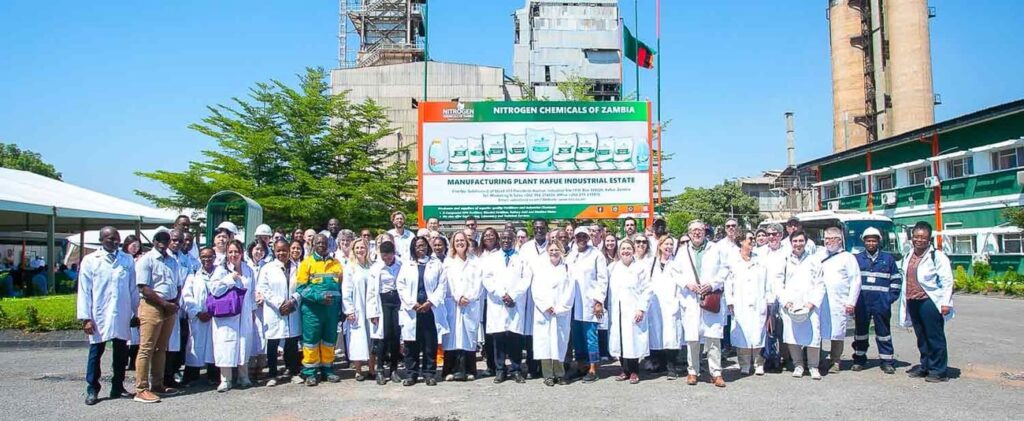ADF Transforms Zambia’s Agriculture and Education Sectors
Concessional financing from the African Development Fund (ADF) is reshaping Zambia’s agriculture and education landscape, providing tangible benefits for farmers, students, and the wider economy. ADF deputies, attending a meeting in Lusaka on the Fund’s 17th replenishment, visited two key projects on 7 October: the new Nitrogen Chemicals of Zambia (NCZ) fertiliser blending plant in Kafue and upgraded facilities at the University of Zambia (UNZA).
At NCZ, Agriculture Minister Reuben Mtolo Phiri praised the Fund for supporting Zambia’s transition from drought to surplus. “The ADF’s investment in the new blending and granulating facilities is not merely financial but an investment in our farmers, our economy, and our future,” he said. “This achievement strengthens our capacity to meet domestic fertiliser demand and positions Zambia to access export markets between 2025 and 2030.”
The $1.3 million ADF injection is expected to reduce fertiliser costs by 40 per cent, benefiting smallholder farmers, while the Zambia Emergency Food Production initiative has supported nearly 5,900 farmers, more than half of them women, with subsidised seeds and fertiliser through the digital platform ZIAMIS. A further $35 million in financing will assist over 9,000 farmers in the current season.
Senior Vice President of the African Development Bank Group, Marie-Laure Akin-Olugbade, highlighted Zambia’s food security gains. “In the 2024/25 season, Zambia produced over 3.7 million metric tons of food, well above its national requirement of 2.5 million. That is not just food security, that is food surplus,” she said.
At the University of Zambia, Vice Chancellor Professor Mundia Muya noted that ADF funding through the Support to Science and Technology Education Project has modernised lecture theatres and laboratories, providing a conducive environment for learning and research. Minister of Technology and Science Felix Chipota Mutati added that the Fund’s investments have expanded access to tertiary and technical education for 250,000 students.
“When students learn in a conducive environment, their potential becomes transformative. This is not just about investment—it anchors peace, democracy, and social harmony,” he said.
Ms Akin-Olugbade emphasised that the Zambia Emergency Food Production Facility forms part of the continent-wide Africa Emergency Food Production Facility, supporting 20 million farmers and targeting 37 million tons of food production across Africa.
“While launched in response to a crisis, the initiative is laying the foundation for a more resilient, private sector–driven agricultural system, reducing import dependence and empowering Zambian farmers,” she explained.
The ADF-17 replenishment meeting runs in Lusaka from 7 to 9 October, ahead of a final pledging session scheduled for December 2025, highlighting the Fund’s continued commitment to fostering sustainable development and regional competitiveness across Africa.



